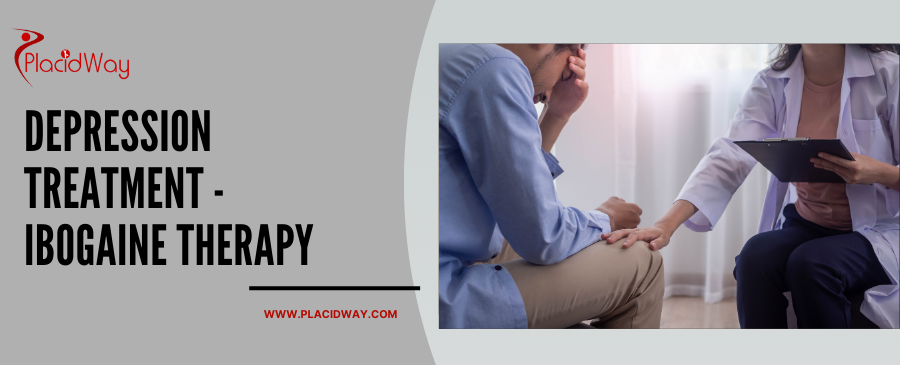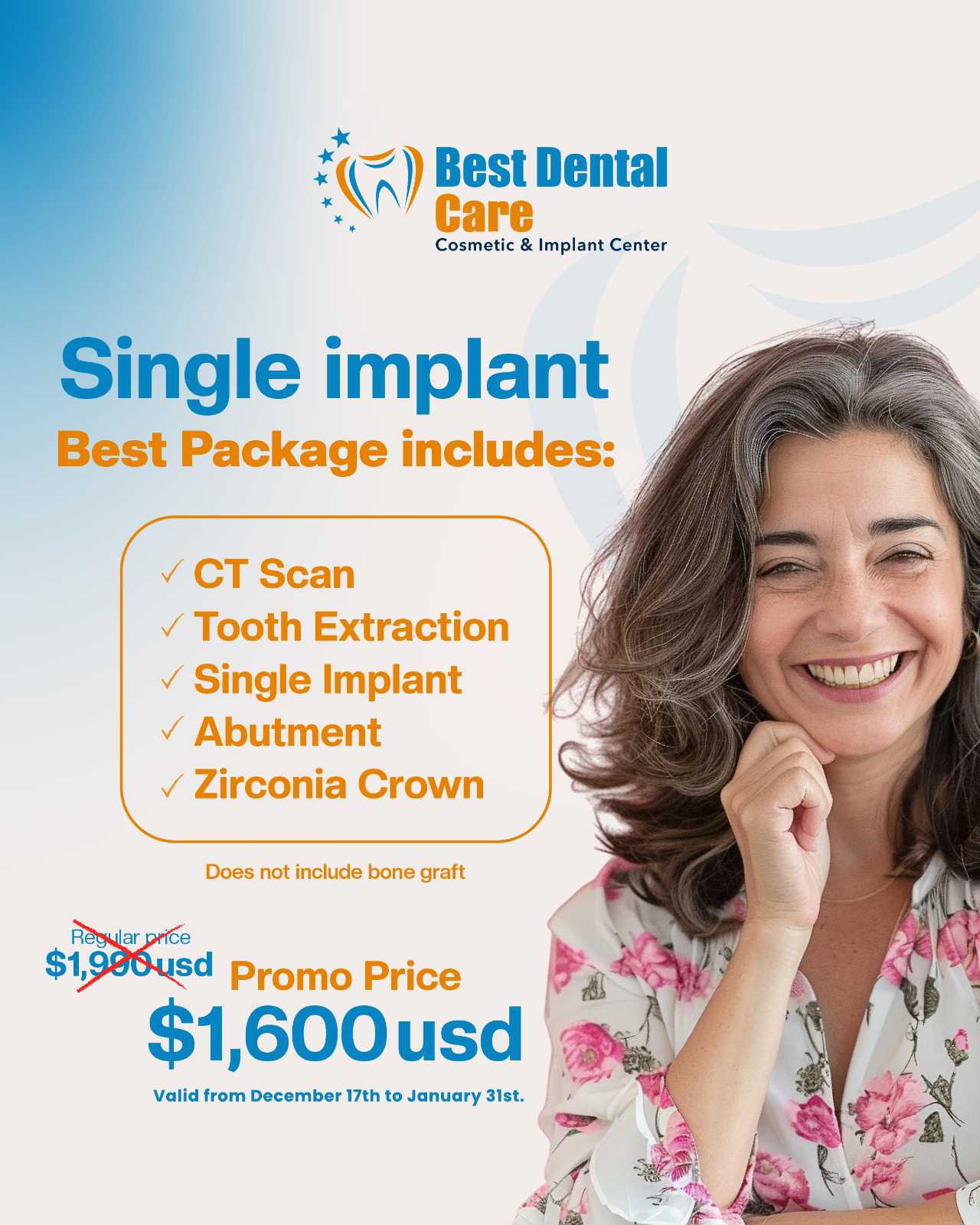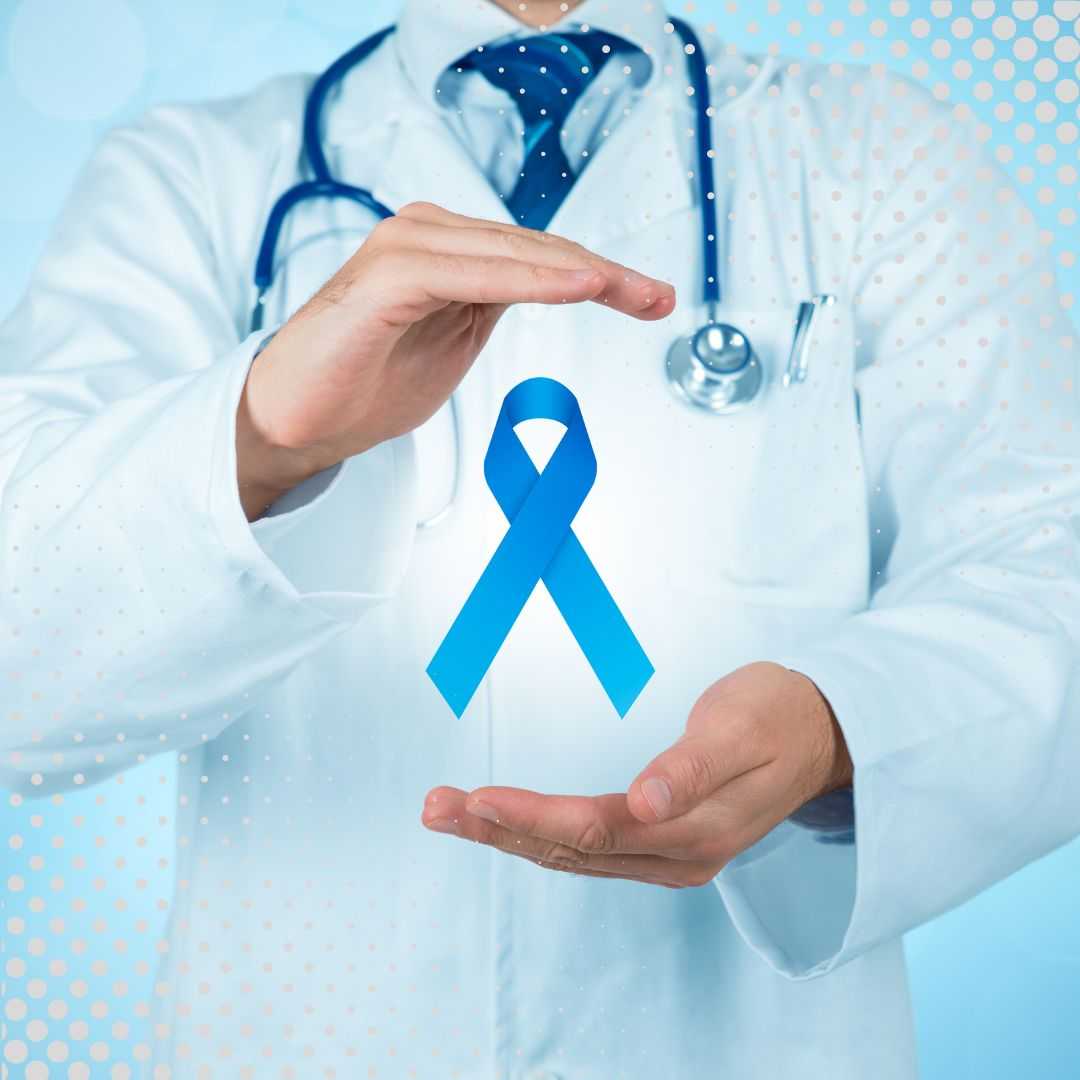
Finding Hope: Exploring Ibogaine Therapy for Depression Treatment
Living with depression can feel like being trapped in a dark, relentless cycle. For many, conventional treatments like antidepressants and psychotherapy offer a path to recovery. However, for a significant number of individuals, these traditional methods fall short, leading to what is known as treatment-resistant depression. If you've exhausted standard options and are seeking a different approach, you might be exploring alternative therapies, including the intriguing prospect of Ibogaine therapy for depression treatment.
Ibogaine, a naturally occurring psychoactive substance found in the root bark of the Tabernanthe iboga plant, has garnered attention for its potential in treating various conditions, including substance addiction and, increasingly, severe depression. While not widely available or legal in all countries, especially for depression treatment, specialized clinics in certain locations abroad offer this unique therapeutic experience under medical supervision. This has made it a topic of interest for those considering medical tourism for depression treatment, seeking relief and a fresh perspective.
This comprehensive guide aims to shed light on Ibogaine therapy as a potential path for depression, answering crucial questions about its mechanisms, eligibility, safety, and what to expect, particularly if you are considering undergoing treatment in another country. We understand the courage it takes to explore new avenues for healing, and our goal is to provide clear, empathetic, and detailed information to help you make informed decisions about your mental health journey. Could ibogaine therapy for severe depression be the answer you've been searching for?
What are the common symptoms of depression that Ibogaine therapy might address?
Depression is more than just feeling sad; it's a persistent mood disorder that can significantly impact your daily life, relationships, and overall well-being. Recognizing the symptoms of severe depression is the first step toward seeking help. While symptoms vary from person to person, common indicators that Ibogaine therapy might be considered for include:
- Persistent Sadness or Irritability: A pervasive feeling of sadness, emptiness, or an irritable mood that lasts for most of the day, nearly every day.
- Loss of Interest or Pleasure (Anhedonia): A noticeable decrease in enjoyment from activities you once loved, including hobbies, social interactions, or sex. This is a core symptom for many.
- Significant Changes in Appetite or Weight: Unexplained weight loss or gain, or a marked decrease or increase in appetite.
- Sleep Disturbances: Insomnia (difficulty falling or staying asleep) or hypersomnia (sleeping excessively), nearly every day.
- Fatigue or Loss of Energy: Feeling tired or lacking energy, even after sufficient sleep, leading to reduced activity levels.
- Feelings of Worthlessness or Guilt: Preoccupation with past failures or feeling excessively guilty for things beyond your control.
- Difficulty Concentrating: Trouble making decisions, remembering things, or focusing on tasks.
- Psychomotor Agitation or Retardation: Restlessness, pacing, hand-wringing, or, conversely, slowed movements and speech noticeable to others.
- Recurrent Thoughts of Death or Suicide: This is a critical symptom requiring immediate professional attention.
Ibogaine therapy is often considered for individuals whose symptoms are particularly severe or for whom standard treatments have proven ineffective – a condition often referred to as treatment-resistant depression. If you recognize these signs of chronic depression in yourself or a loved one, exploring all available options, including alternative therapies abroad, becomes a vital consideration.
What are the underlying causes and risk factors for depression?
Depression is a multifaceted illness, and its exact causes are not fully understood, but it's generally believed to result from a combination of genetic, biological, psychological, and environmental factors. Knowing these can help in understanding why conventional treatments might not always work for everyone and why alternative approaches like Ibogaine are explored. Here are some key causes of clinical depression:
- Brain Chemistry: Imbalances in neurotransmitters like serotonin, dopamine, and norepinephrine are often implicated. While antidepressants aim to correct these, their efficacy can vary, and some individuals don't respond well.
- Genetics: If you have a family history of depression, you may have an increased genetic predisposition.
- Hormonal Changes: Fluctuations in hormones, such as those during pregnancy, postpartum, or menopause, can trigger or worsen depressive episodes. Thyroid problems can also play a role.
- Trauma and Stress: Significant life events, chronic stress, or past trauma (physical, emotional, or sexual abuse) can profoundly impact mental health and increase the risk of depression.
- Personality Traits: Certain personality traits, such as low self-esteem, being overly self-critical, or pessimistic, can make individuals more vulnerable.
- Serious Medical Conditions: Chronic illnesses, cancer, heart disease, or chronic pain can often co-occur with depression, exacerbating symptoms.
- Substance Abuse: Alcohol and drug abuse can trigger or worsen depression. It's often a cyclical relationship where individuals self-medicate their depression, leading to increased problems.
- Social Isolation: Lack of social support or feeling disconnected from others can significantly contribute to depressive states.
When these risk factors for major depressive disorder combine, they can create a challenging landscape for recovery. For those who find themselves asking, "Why am I depressed and why isn't anything working?", exploring an alternative mechanism like that offered by Ibogaine becomes a compelling consideration.
How does Ibogaine therapy work for depression treatment?
Understanding the ibogaine mechanism for depression is key to appreciating its potential. Unlike conventional antidepressants that often target specific neurotransmitters over time, Ibogaine appears to offer a multi-faceted approach, often described as a "reset" for the brain and mind.
Here's how Ibogaine helps depression:
- Neurotransmitter Modulation: Ibogaine interacts with a wide range of neurotransmitter systems, including serotonin, dopamine, and opioid receptors. It's believed to help normalize these systems, which can be imbalanced in depression. Its metabolite, noribogaine, has a longer half-life and may contribute to sustained effects.
- Neurogenesis and Neuroplasticity: Emerging research suggests Ibogaine and noribogaine can promote neurogenesis (the growth of new brain cells) and neuroplasticity (the brain's ability to reorganize itself by forming new neural connections). This could help repair damage from chronic stress or depression and facilitate new, healthier thought patterns.
- Interrupting Negative Thought Loops: Many patients report that Ibogaine can interrupt the entrenched negative thought patterns and rumination common in depression. It creates a temporary window of clarity, allowing individuals to detach from their usual depressive narratives.
- Psycho-Spiritual Insight: Ibogaine induces a profound, dream-like state that can facilitate introspection and psychological processing. Users often report gaining deep insights into the root causes of their depression, processing past traumas, and finding new perspectives on their life challenges. This introspective journey can be a powerful catalyst for change.
- Anti-Inflammatory Properties: Some studies suggest Ibogaine may have anti-inflammatory effects, which is relevant given the growing understanding of inflammation's role in depression.
The combination of these effects distinguishes Ibogaine from traditional pharmaceuticals, offering a holistic disruption to depressive cycles and fostering an environment for healing and sustained relief, particularly in cases of treatment-resistant depression.
Who is eligible for Ibogaine therapy for depression?
While Ibogaine holds promise, it is not for everyone. Clinics offering the therapy have stringent eligibility criteria to ensure patient safety and maximize the chances of a positive outcome. If you're wondering "who can take ibogaine for depression," here are the general guidelines:
- Treatment-Resistant Depression: Primarily, candidates are individuals with chronic or severe depression who have tried and failed multiple conventional treatments (e.g., antidepressants, psychotherapy) without significant improvement.
- Good Physical Health: This is paramount. A comprehensive medical evaluation is required, often including:
- Cardiovascular Health: Ibogaine can affect heart rhythm, so individuals with pre-existing heart conditions (e.g., arrhythmias, long QT syndrome), a history of stroke, or uncontrolled high blood pressure are generally excluded. An EKG and cardiac stress test are typically mandatory.
- Liver and Kidney Function: Healthy organ function is necessary to metabolize and excrete Ibogaine safely.
- No Recent Substance Abuse: While Ibogaine is known for addiction treatment, individuals seeking depression treatment must be free from active substance abuse (including alcohol) for a specified period prior to treatment, as certain substances can interact dangerously with Ibogaine.
- Mental and Psychological Stability (beyond depression): While depression is the target, individuals with certain other severe psychiatric conditions (e.g., active psychosis, schizophrenia, severe bipolar disorder) may be deemed unsuitable due to the intense psychological nature of the Ibogaine experience.
- Medication Review: A thorough review of all current medications is essential. Many antidepressants and other drugs can interact negatively with Ibogaine, requiring a safe tapering period before treatment.
- Commitment to Aftercare: Clinics often prefer candidates who demonstrate a commitment to integrating the experience through post-treatment therapy and lifestyle changes.
It's crucial to understand that reputable clinics will conduct extensive pre-screening to determine ibogaine eligibility criteria and assess if is ibogaine safe for me specifically. Never attempt Ibogaine therapy without professional medical supervision and thorough evaluation.
What is the typical recovery time and what can I expect after Ibogaine treatment?
The journey with Ibogaine doesn't end when the acute effects wear off; it marks the beginning of a profound recovery and integration process. Understanding the ibogaine recovery period and what to expect is crucial for maximizing its benefits.
- Acute Phase (24-72 hours): Immediately after the dose, patients enter a powerful introspective state ("the flood") lasting 24-36 hours, followed by a period of introspection and review ("the 'grey day'") for another 24-36 hours. During this time, physical side effects like nausea and ataxia (difficulty with coordination) are common, requiring constant medical supervision. Most patients will feel tired and need significant rest.
- Immediate Post-Treatment (Days 3-7): Most clinics recommend staying for several days after the main experience for observation, rest, and initial processing. You'll likely feel a sense of clarity, mental quietness, and emotional openness. This is a crucial time for initial discussions with therapists or integration coaches.
- The "Afterglow" and Integration Phase (Weeks to Months): Many patients report an "afterglow" effect – a period of reduced cravings, clearer thinking, and elevated mood that can last for weeks. However, this is not a permanent cure. The true work begins in the integration phase, where you consciously work to incorporate the insights gained during the Ibogaine experience into your daily life. This involves:
- Therapy and Counseling: Essential for processing insights, addressing underlying issues, and developing coping mechanisms.
- Lifestyle Changes: Adopting healthy habits regarding diet, exercise, sleep, and mindfulness.
- Support Systems: Connecting with support groups, friends, or family who understand your journey.
- Avoiding Triggers: Identifying and managing situations or relationships that historically contributed to depression.
The success of life after Ibogaine for depression heavily relies on this integration work. While Ibogaine can offer a powerful reset, it's a tool that provides an opportunity for change, not a magic bullet. Patients who commit to ibogaine aftercare and follow-up support tend to achieve more sustained positive outcomes.
What are the potential risks and side effects of Ibogaine therapy?
While potentially transformative, Ibogaine therapy is not without its risks and side effects. It's crucial to be fully informed about the potential downsides and to choose a clinic that prioritizes safety above all else. Understanding ibogaine dangers for depression is vital.
- Cardiovascular Risks: This is the most serious concern. Ibogaine can prolong the QT interval (a measure of heart rhythm), which can lead to a dangerous arrhythmia called Torsades de Pointes, potentially resulting in sudden cardiac arrest. This is why thorough cardiac screening (ECG, blood tests, sometimes stress tests) is absolutely mandatory before treatment, and continuous cardiac monitoring is required during and after the experience.
- Neurological Effects: Temporary ataxia (loss of full control of bodily movements) is common and can last for several days. Some individuals may experience tremors or dizziness.
- Gastrointestinal Distress: Severe nausea, vomiting, and diarrhea are very common ibogaine side effects, especially during the initial hours of the experience. Hydration and electrolyte balance are closely monitored.
- Psychological Challenges: The Ibogaine experience can be intensely introspective and can bring suppressed memories or traumas to the surface. While this can be therapeutic, it can also be emotionally challenging and overwhelming for some individuals. Proper psychological preparation and support during the experience are essential.
- Interactions with Medications: Ibogaine can interact dangerously with many prescription drugs, including antidepressants, opioids, and certain heart medications. A thorough medication review and a safe tapering period (under medical guidance) for certain drugs are critical.
- Overdose: In unregulated or unsupervised settings, there is a risk of overdose, which can be fatal.
The question "is ibogaine therapy safe?" can only be answered with a qualified "yes" – *if* conducted in a professional, medically supervised setting with rigorous screening protocols, experienced staff, and emergency medical capabilities. Never consider self-administering Ibogaine or undergoing treatment in an unregulated environment.
How does the cost of Ibogaine therapy for depression compare worldwide?
The Ibogaine depression treatment cost is a significant factor for many considering this therapy, especially as it often necessitates international travel. Prices can vary widely based on several factors:
- Location: Countries where Ibogaine therapy is legal or regulated for medical use (e.g., Mexico, Costa Rica, certain parts of Europe) often have different cost structures.
- Clinic Reputation and Facilities: Established clinics with highly qualified medical staff, state-of-the-art medical monitoring, and comfortable accommodations typically charge more.
- Duration of Stay: The total length of your stay at the clinic, which often includes pre-treatment preparation, the Ibogaine experience itself, and post-treatment integration support.
- Included Services: What's covered? Does it include flights, accommodation outside the clinic, follow-up therapy, additional complementary therapies (e.g., massage, yoga, counseling), and personalized nutrition plans?
Here's a general ibogaine cost comparison:
| Region/Country | Estimated Cost Range (USD) | Typical Inclusions |
|---|---|---|
| Mexico | $5,000 - $12,000+ | Medical pre-screening, supervision during treatment, accommodation (3-7 days), basic aftercare/integration. |
| Costa Rica | $7,000 - $15,000+ | Comprehensive medical care, longer stays (7-10 days), holistic therapies, extensive integration support, often luxury settings. |
| Europe (e.g., Portugal, Netherlands) | $8,000 - $18,000+ | Highly regulated environments, extensive psychological and medical support, often longer programs. (Note: legality for depression varies.) |
| North America (Underground/Research - Not widely legal for depression) | Varies greatly, highly risky | Highly unregulated, often lacking medical oversight. NOT RECOMMENDED. |
Remember, these are estimates. For an accurate quote, direct consultation with reputable clinics is essential. Choosing an affordable ibogaine therapy abroad should never compromise on safety and medical quality.
Why should I consider traveling abroad for Ibogaine depression treatment?
For individuals struggling with treatment-resistant depression, the decision to seek help abroad often stems from a combination of factors. Ibogaine therapy abroad has become a viable option for several compelling reasons:
- Legality and Accessibility: In many countries, Ibogaine is classified as a controlled substance, making it illegal or highly restricted for medical use, especially for depression. Countries like Mexico and Costa Rica have established legal frameworks for its therapeutic application, allowing access to treatment that might otherwise be unavailable.
- Specialized Expertise: Clinics in these regions often have years of experience with Ibogaine, developing specific protocols and expertise in administering the therapy and managing the unique psychological and physiological aspects of the experience. This specialized knowledge is crucial for safety and efficacy.
- Cost-Effectiveness: As seen in the cost comparison, the overall expense of treatment, including medical care, accommodation, and sometimes even travel, can be significantly lower abroad compared to what highly restricted or experimental treatments might cost in Western countries, if even available.
- Holistic and Integrative Approach: Many international clinics integrate Ibogaine therapy with other holistic treatments such as psychotherapy, nutritional support, yoga, and meditation. This comprehensive approach aims to support healing on multiple levels – physical, mental, and spiritual.
- Privacy and Anonymity: Traveling to another country can offer a degree of privacy and anonymity, allowing individuals to undergo treatment away from the scrutiny or judgment they might experience in their home communities.
- Environment for Healing: The change of environment itself can be therapeutic. Many clinics are located in serene, natural settings conducive to healing and introspection, away from the daily stressors that can exacerbate depression.
Choosing medical tourism for depression treatment requires careful planning, but for those seeking an alternative when all else has failed, these benefits can outweigh the logistical challenges.
What should I expect when traveling for Ibogaine therapy for depression?
Traveling for Ibogaine treatment involves more than just booking a flight. It requires careful planning and a clear understanding of the process. Here’s a general overview of what to expect:
- Initial Consultation and Vetting: Your journey typically begins with remote consultations (phone, video call) with the chosen clinic. They will assess your medical history, current medications, and suitability for treatment. This is where you’ll share your history of depression and previous treatments.
- Pre-Treatment Medical Screening: Once deemed a potential candidate, you'll undergo comprehensive medical tests, often including blood work, liver function tests, kidney function tests, and a full cardiac workup (ECG, possibly an echocardiogram). These tests might be done in your home country and sent to the clinic, or done upon arrival.
- Logistics and Travel Planning: You’ll need to arrange your flights, visas (if required for your destination country), and transport to and from the clinic. Many clinics offer assistance with airport pick-up. Ensure all your documentation is in order.
- Arrival at the Clinic: Upon arrival, you’ll typically have an in-person medical evaluation and a psychological intake session. This is a chance to meet the team, get comfortable, and ask any final questions.
- Detox and Preparation (if necessary): If you are on certain medications that need to be tapered or if there's any substance use history, a short detox period under medical supervision might be required before Ibogaine administration.
- The Ibogaine Experience: The main Ibogaine session is typically 24-72 hours, with the acute effects lasting 24-36 hours. You will be continuously monitored by medical staff (nurses, doctors) throughout this period. The environment is usually quiet, safe, and supportive.
- Post-Treatment Integration: After the main experience, you’ll stay at the clinic for several days for rest, recovery, and initial integration sessions. This is a crucial time for processing your insights with therapists or counselors.
- Departure and Aftercare: Before leaving, the clinic should provide you with a personalized aftercare plan, including recommendations for ongoing therapy, lifestyle adjustments, and potentially connections to support networks.
Clear communication with your chosen clinic about ibogaine therapy logistics abroad will make the process much smoother and less daunting.
How can I ensure safety and quality when choosing an Ibogaine clinic abroad?
The importance of choosing a safe and reputable clinic cannot be overstated when considering Ibogaine therapy abroad. Your health and safety are paramount. Here’s how to ensure safe ibogaine clinics abroad and quality care:
- Medical Supervision and Staff Credentials: Verify that the clinic has licensed medical doctors, nurses, and emergency medical personnel on staff 24/7 during your treatment. Inquire about their experience with Ibogaine and emergency protocols. They should be equipped to handle any medical complications, especially cardiac events.
- Rigorous Pre-Screening: A reputable clinic will insist on extensive medical pre-screening, including comprehensive cardiac tests, blood work, and a thorough review of your medical and psychiatric history. Be wary of any clinic that offers treatment without these vital steps.
- Transparency and Communication: The clinic should be transparent about their protocols, risks, costs, and what is included in the package. They should be readily available to answer all your questions before you commit.
- Facility Standards: While not always luxurious, the facility should be clean, comfortable, and equipped for medical emergencies. Check for details on monitoring equipment (e.g., ECG machines), oxygen, and emergency medications.
- Post-Treatment Support and Integration: Quality care extends beyond the Ibogaine experience itself. Inquire about their aftercare plan, including access to therapists, integration coaches, and ongoing support. This is critical for sustained healing.
- Patient Testimonials and Reviews: Seek out independent reviews, patient forums, and success stories. While individual experiences vary, a pattern of positive, medically sound care is a good indicator. Be cautious of overly enthusiastic or unverified claims.
- Professional Affiliations/Accreditations: While official Ibogaine accreditations are still evolving, some clinics adhere to international medical standards or are affiliated with reputable medical organizations. Researching their background can offer reassurance regarding ibogaine treatment quality standards.
- Avoid "Underground" or Unregulated Providers: Never consider treatment from individuals or groups operating outside a recognized medical framework. The risks are simply too high.
Thorough research and due diligence are your best tools for finding a reputable ibogaine center and ensuring a safe and effective therapeutic journey.
Take the Next Step with PlacidWay
Ready to explore treatment options abroad? Discover top clinics, compare prices, and get a free quote tailored to your needs with PlacidWay.










Share this listing